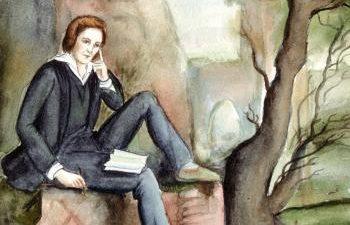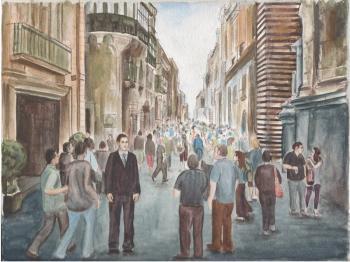On a Poet’s Lips I Slept
On a poet’s lips I slept Dreaming like a love-adept In the sound his breathing kept; Nor seeks nor finds he mortal blisses, But feeds on the aerial kisses Of shapes that haunt thought’s wildernesses. He will watch from dawn to gloom The lake-reflected sun illume The yellow bees in the ivy-bloom, Nor heed nor see what things they be; But from these create he can Forms more real than living man, Nurslings of immortality!
When we open our lips to recite a poem, we excite it, in the sense of breathing life into it, while it in turn breathes life back into us. It reminds us of everything we exclude from our daily perception: a sense of sky, of openness, and of freedom—of the vast distances both beyond and within our mysterious being.This drama of reading is beautifully conveyed in Shelley’s short lyric, taken from his play “Prometheus Unbound.” (Prometheus was a Titan who stole fire from Zeus and handed it to us mortals, sparking our unquenchable desire to vie with the gods.) The poem begins with mere breath and ends with a vision of immortality.





